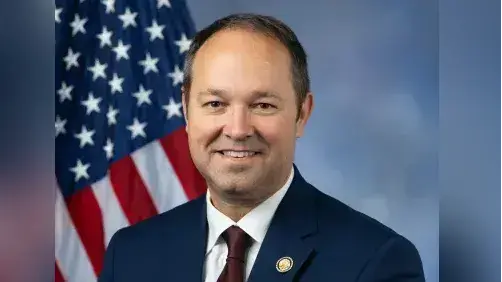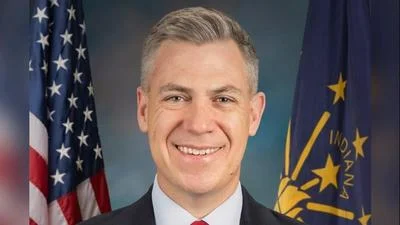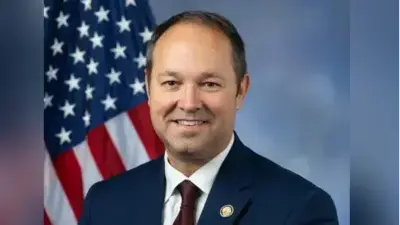Marlin Stutzman, Indiana U.S. House Representative from the 3rd District | https://stutzman.house.gov/
Marlin Stutzman, Indiana U.S. House Representative from the 3rd District | https://stutzman.house.gov/
U.S. Representative Marlin Stutzman, known for his fiscal conservatism and representation of Indiana's 3rd congressional district, recently addressed several policy issues on his official Twitter account. His posts covered topics ranging from legislative priorities in Congress to the intersection of cryptocurrency and agriculture, as well as foreign policy engagement related to the Middle East.
On July 16, 2025, Stutzman reiterated his stance on fiscal responsibility by urging his colleagues to support a proposed rescissions package. He stated, "Pass the bill," he said. "This is the easiest thing possible."
In another post on the same day, Stutzman highlighted the potential for cryptocurrency to benefit rural communities in the Midwest, particularly those involved in agriculture. He commented, "'With crypto,' Stutzman explained, 'it's very natural for us in the Midwest to think about the ability to to make transactions around the world".
Addressing international affairs, Stutzman noted ongoing changes in the Middle East and referenced his efforts related to regional issues and local constituents with ties to Syria. On July 16, 2025, he posted: "The Middle East is being remade in real time, and Stutzman is adapting with the times. Given both new realities on the ground, and the large Syrian community in the Midwest, he has spent no shortage of time working on the region. Stutzman was also one of the first lawmakers to".
Stutzman's comments reflect ongoing debates within Congress regarding federal spending reductions through rescissions packages—measures that cancel previously approved but unspent funds—and highlight growing interest among lawmakers in leveraging digital currencies for economic development in rural America.
The representative's focus on Middle Eastern affairs comes amid shifting geopolitical dynamics and reflects a broader trend among U.S. legislators with significant immigrant populations in their districts who are increasingly involved in foreign policy matters.






 Alerts Sign-up
Alerts Sign-up